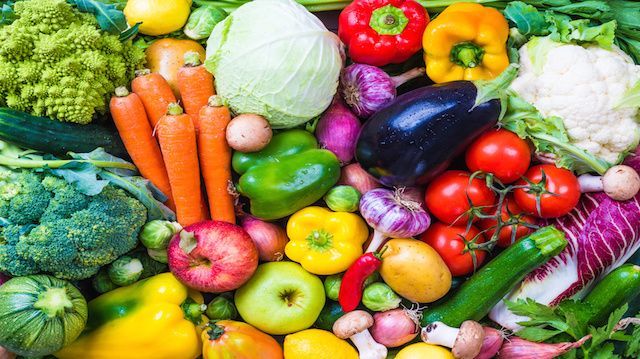
Most of us assume that vegetables are good for us whatever shape or form they come in. They’re packed with nutrients, there’s no recommended limit to how many we should eat each day, and a few taste bad — a sure sign that they’re good for our health! Surely then, it’s even better to eat them raw rather than cooked?
For many vegetables, you wouldn’t be wrong. Cooking often leaches the nutrients from vegetables, or else denatures the proteins and enzymes contained within them, all of which give veggies their health-promoting reputation. Cooking broccoli, for example, damages its myrosinase enzymes, which contribute to the formation of sulforaphane, a potent weapon against cancer and stomach ulcers.
Sadly, this isn’t always the case — read on to find out which vegetables are better cooked than eaten raw.
Tomatoes
Tomatoes are widely celebrated as a source of lycopene, an antioxidant that scientists believe may be even more powerful than vitamin C in preventing certain types of cancer. Research indicates that cooking activates more lycopene in tomatoes and makes it more bioavailable, meaning our bodies can more easily absorb it and reap the benefits. Products like stewed tomatoes, tomato sauce, natural ketchup, and tomato paste will ensure you get your lycopene fix.
Carrots
Carrots are one of the richest sources of beta carotene, which the body converts to vitamin A for many important functions, including reproductive processes, ocular health and immunity. Cooking carrots significantly elevates their beta carotene concentrations, ensuring you make the most of their health-giving properties.
Cruciferous vegetables
Yes, cruciferous vegetables may be the bee’s knees when it comes to health, but in fact they can actually harm your health if eaten raw. Vegetables from this family — including cabbage, brussels sprouts and cauliflower — are better when cooked. In their raw form, they contain chemicals that block the production of thyroid hormone in the body, making them particularly dangerous for those at risk of, or suffering from, hypothyroidism.
Hypothyroidism can wreak havoc on your body, with symptoms including hair loss, fatigue, low libido, constipation, weight gain, depression, and a range of other issues. Cooking your cruciferous vegetables ensures that most of the thyroid-blocking chemicals contained in them are removed.
As with everything, however, it’s good to mix things up a little. You may have noticed earlier in the article we discussed the health benefits that can be gained from eating broccoli raw. Broccoli is another cruciferous vegetable. So on the one hand, cooking broccoli destroys its cancer-fighting enzymes, and on the other, eating it raw elevates your risk of developing hypothyroidism. Rather than throwing in the towel and giving up broccoli altogether, try alternating between eating it raw and cooked — that way, you get the benefits of both forms and minimize the problems with each.
Dark leafy greens
Certain leafy vegetables contain a chemical known as oxalic acid, a substance that irritates the mouth and intestinal tract and blocks the absorption of certain important nutrients in the body. As a result, eating greens such as Swiss chard, spinach, beet greens, parsley, chives and purslane raw can leach calcium from your bones and encourage the formation of kidney stones. They are therefore best eaten cooked. The best way to do this is to lightly sauté them with some grass-fed butter or coconut oil — they’ll taste even more fantastic than before!
Mushrooms
Yes, even the humble mushroom can do you damage if you eat it raw. That’s because mushrooms contain small concentrations of toxins, some of which are considered carcinogenic. The good news is, these toxins are heat sensitive and are neutralized when exposed to heat, such as grilling or broiling. Incidentally, this brings out the rich, hearty flavor of mushrooms anyway, so why wouldn’t you?
Another reason to cook mushrooms is their tough cell walls. These cell walls make mushrooms almost indigestible if eaten raw, while thoroughly heating them releases nutrients such as B vitamins, protein, and a range of minerals.
Potatoes
While it’s unlikely that you were about to stroll into the kitchen and begin munching on a raw potato, stranger things have happened. If you do feel the urge to eat a raw potato, however, you might want to hold off. Raw potatoes are bad for our digestive systems. They contain starchy carbohydrates that are difficult for our body to break down, causing gas and bloating.
Now that you know which vegetables you should cook, here’s a look at which vegetables you should eat raw.
—Liivi Hess
Sources:
http://link.springer.com/article/10.1007/s10552-010-9545-2#/page-1
http://link.springer.com/article/10.1023/A:1020243527152#page-1
http://pubs.acs.org/doi/abs/10.1021/jf062630b

